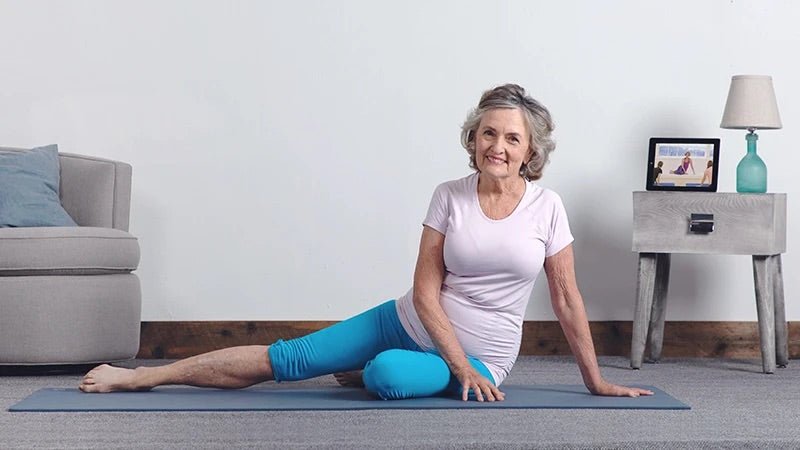Pilates is a versatile and inclusive form of exercise that can be adapted to accommodate individuals of all ages and fitness levels. Whether you're a child, teenager, adult, or senior, Pilates offers numerous benefits for improving strength, flexibility, posture, and overall well-being. In this guide, we'll explore the question "Can all ages do Pilates?" and provide practical tips on how to accommodate different ages in Pilates practice, empowering individuals of all generations to experience the transformative benefits of Pilates.
1. Can All Ages Do Pilates?
The short answer is yes—individuals of all ages can safely and effectively participate in Pilates practice. Pilates is a low-impact exercise system that emphasises controlled, precise movements and can be adapted to suit a wide range of ages and abilities. From children and teenagers to adults and seniors, Pilates offers benefits for everyone, regardless of age or fitness level. Whether you're looking to build strength, improve flexibility, rehabilitate injuries, or enhance overall well-being, Pilates provides a versatile and accessible platform for achieving your health and fitness goals at any stage of life.
2. Benefits of Pilates for Different Age Groups:
-
Children and Teenagers: Pilates can be particularly beneficial for children and teenagers as they develop strength, flexibility, and body awareness during crucial stages of growth and development. Pilates exercises help improve posture, coordination, and balance, which are essential for physical health and athletic performance. Additionally, Pilates can promote confidence, self-esteem, and body positivity among young practitioners, fostering a positive mindset towards fitness and well-being.
-
Adults: For adults, Pilates offers a holistic approach to fitness that addresses the unique challenges and demands of modern life. Pilates exercises help alleviate stress, tension, and postural imbalances caused by sedentary lifestyles, prolonged sitting, and repetitive movements. By strengthening the core muscles, improving spinal alignment, and enhancing mobility, Pilates enables adults to move more efficiently, prevent injuries, and maintain vitality and independence as they age.
-
Seniors: Pilates is especially beneficial for seniors as it provides a safe and effective way to maintain strength, flexibility, and mobility in later life. Pilates exercises can help alleviate common age-related issues such as joint stiffness, muscle weakness, and balance problems, reducing the risk of falls and injuries. Additionally, Pilates promotes mental clarity, focus, and mindfulness, which are important for cognitive health and overall well-being in seniors.
3. Accommodating Different Ages in Pilates Practice:
-
Tailored Programming: When accommodating different ages in Pilates practice, it's essential to tailor programming to meet the specific needs and goals of each age group. For children and teenagers, focus on age-appropriate exercises that emphasize fun, creativity, and exploration, incorporating games, props, and storytelling to engage young minds. For adults and seniors, prioritize exercises that address common postural issues, mobility restrictions, and age-related concerns, emphasizing functional movement patterns and injury prevention.
-
Modifications and Progressions: Offer modifications and progressions to accommodate individuals of varying ages and fitness levels within the same class or session. Provide options for increasing or decreasing resistance, adjusting range of motion, and modifying exercises to suit different abilities and physical conditions. Encourage participants to listen to their bodies, honor their limitations, and work at their own pace while challenging themselves appropriately.
-
Focus on Fundamentals: Regardless of age, emphasize the importance of mastering the fundamentals of Pilates, including proper alignment, breathing technique, and core engagement. Start with foundational exercises that build a strong base of support and stability before progressing to more advanced movements. By establishing a solid foundation of Pilates principles, individuals of all ages can safely and effectively progress in their practice over time.
-
Individualized Attention: Provide individualized attention and support to ensure that each participant feels valued, heard, and supported in their Pilates journey. Offer personalised modifications, adjustments, and feedback based on individual needs and goals, taking into account factors such as injury history, physical limitations, and fitness aspirations. Create a supportive and inclusive environment where participants of all ages feel empowered to explore their potential and achieve their goals.
Conclusion: Pilates for Every Age
In conclusion, Pilates is a versatile and inclusive form of exercise that can be enjoyed by individuals of all ages and fitness levels. Whether you're a child, teenager, adult, or senior, Pilates offers numerous benefits for improving strength, flexibility, posture, and overall well-being. By tailoring programming, offering modifications and progressions, focusing on fundamentals, and providing individualized attention, Pilates instructors can accommodate diverse age groups and create a supportive and inclusive environment where everyone can thrive. With its emphasis on mindful movement, breath awareness, and holistic wellness, Pilates empowers individuals of all ages to embrace a lifelong journey of health, vitality, and self-discovery.

